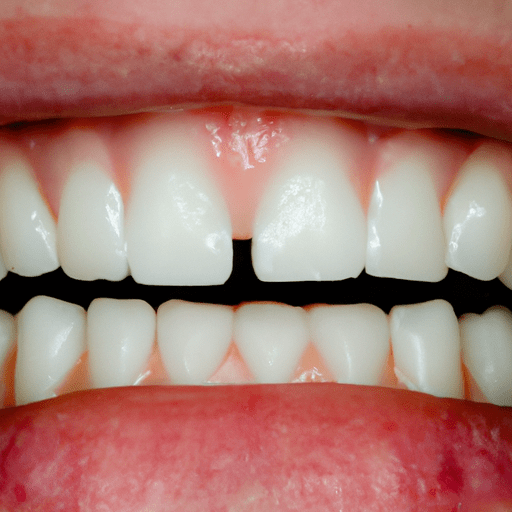If you or someone you know struggles with snoring, then you’re in luck! In this article, we will explore an effective therapy, known as Provent, that can significantly reduce snoring and improve your quality of sleep. Say goodbye to sleepless nights and hello to peaceful slumbers as we uncover the benefits and workings of this remarkable anti-snoring solution. Snoring will no longer disturb you or your loved ones, allowing everyone to wake up refreshed and ready to take on the day ahead. Get ready to discover a solution that will revolutionize your sleep patterns and restore harmony to your bedroom.
Understanding Snoring and Its Effects
Defining Snoring
Snoring is the harsh, vibrating sound that occurs during sleep when there is an obstruction or narrowing in the airways. It is a common condition that affects both men and women of all ages. Snoring can range from mild to severe, and can have various causes and impacts on health.
Causes of Snoring
There are several factors that contribute to the development of snoring. The most common cause is the relaxation of the muscles in the throat and tongue during sleep, which causes the airway to narrow. Other factors include obesity, nasal congestion, enlarged tonsils or adenoids, alcohol consumption, smoking, and certain medications. Identifying the underlying cause of snoring is crucial in determining the appropriate treatment.
Impacts of Snoring on Health
Snoring not only disrupts your sleep, but it can also have negative effects on your overall health. It can lead to excessive daytime sleepiness, fatigue, irritability, impaired concentration, and decreased productivity. In addition, chronic snoring has been associated with a higher risk of developing cardiovascular diseases, such as hypertension, heart disease, and stroke. It is important to address snoring to improve both your sleep quality and overall well-being.
Relationship between Snoring and Sleep Quality
Snoring can significantly impact the quality of your sleep. It disrupts the normal sleep cycle, causing frequent awakenings throughout the night and preventing you from reaching deep and restorative sleep stages. This can result in daytime fatigue and a feeling of not being well-rested. Improving sleep quality is essential for optimal physical and mental health.
Medical Screening for Snoring
Importance of Medical Evaluation
If you are experiencing frequent or loud snoring, it is advisable to seek medical evaluation. A healthcare professional can assess your condition, identify any underlying causes, and recommend appropriate treatment options. Medical screening is crucial to rule out any potential serious health issues related to your snoring.
Typical Diagnostic Tests
To determine the severity of your snoring and identify any contributing factors, your healthcare provider may recommend certain diagnostic tests. This may include a physical examination, sleep studies, nasal endoscopy, or imaging tests. These tests will provide valuable insights into the nature and potential causes of your snoring.
Analyzing the Severity of Snoring
During the medical evaluation, your healthcare provider will assess the severity of your snoring. This is usually based on the frequency, intensity, and duration of your snoring episodes. The severity can range from mild to severe, with mild snoring being occasional and not significantly disruptive, while severe snoring indicates consistent and loud snoring throughout the night.
Identifying Underlying Causes
Identifying the underlying causes of your snoring is crucial for effective treatment. Your healthcare provider will investigate potential factors such as nasal congestion, obesity, or anatomical abnormalities. By determining the root cause, you can target specific areas for treatment and improve the chances of successfully reducing your snoring.

Defined Treatment Options for Snoring
Medical Treatments
There are various medical treatments available to address snoring. These may include medications to reduce nasal congestion, treat allergies, or promote airway dilation. Depending on the underlying cause of your snoring, your healthcare provider may recommend specific medications or treatments to alleviate your symptoms and improve sleep quality.
Surgical Methods
In some cases, surgical intervention may be necessary to effectively treat snoring. Surgical procedures aim to correct anatomical abnormalities or remove obstructions in the airway. This may involve procedures such as uvulopalatopharyngoplasty (UPPP), tonsillectomy, or nasal surgery. Surgical methods are typically reserved for severe cases of snoring or when other treatments have been unsuccessful.
Snoring Devices
Snoring devices, such as oral appliances or nasal dilators, can be used to alleviate snoring. These devices work by improving airflow and reducing airway obstruction during sleep. Oral appliances are custom-made to fit your mouth and help reposition the jaw, while nasal dilators open up the nasal passages. These devices can be effective for mild to moderate snoring.
Natural Remedies
There are also natural remedies and lifestyle changes that can help reduce snoring. These may include weight loss, avoiding alcohol and sedatives before bedtime, sleeping on your side, elevating your head while sleeping, and practicing good sleep hygiene. These remedies may provide relief for mild snoring, but it is important to consult with a healthcare professional to determine the most appropriate approach for your specific situation.
Provent Snoring Therapy
Introduction to Provent Therapy
Provent Therapy is a non-invasive and clinically proven treatment option for snoring. It involves the use of small, disposable devices that are placed in the nostrils during sleep. These devices utilize the power of exhalation to create positive pressure in the airway, effectively keeping it open and reducing snoring.
How Provent Therapy Works
Provent Therapy works by utilizing the principle of expiratory positive airway pressure (EPAP). The devices have small valves that create resistance during exhalation, increasing the pressure in the airway and preventing it from collapsing. This helps maintain an open airway and reduces snoring. Provent Therapy does not require any external equipment or power source, making it convenient and easy to use.
Effectiveness of Provent Therapy
Provent Therapy has been shown to be effective in reducing snoring and improving sleep quality. Clinical studies have demonstrated significant reductions in snoring intensity and frequency with the use of Provent devices. It is a widely recognized and recommended treatment option for snoring.
Benefits and Challenges of Provent Therapy
One of the key benefits of Provent Therapy is its simplicity and ease of use. The devices are small, discreet, and disposable, making them convenient for travel or use at home. Provent Therapy is also non-invasive and does not cause discomfort or pain. However, it may take some time to adjust to using the devices, and a few individuals may initially find it uncomfortable. It is important to consult with a healthcare professional to determine if Provent Therapy is suitable for your specific needs.

Lifestyle Changes to Reduce Snoring
Effective Dietary Changes
Making certain dietary changes can help reduce the severity of snoring. Avoiding large meals, especially before bedtime, can prevent stomach pressure that can contribute to snoring. Additionally, reducing the consumption of dairy products, caffeine, and spicy foods may alleviate nasal congestion and promote better breathing during sleep.
Role of Regular Exercise
Regular physical exercise can play a significant role in reducing snoring. Engaging in activities that promote overall cardiovascular fitness, such as brisk walking, jogging, or swimming, can help improve muscle tone in the throat and reduce the likelihood of airway collapse during sleep. It is recommended to aim for at least 30 minutes of moderate exercise most days of the week.
Impact of Weight Loss
If you are overweight or obese, losing weight can have a positive impact on reducing snoring. Excess weight can contribute to the narrowing of the airway and increase the risk of obstruction during sleep. By adopting a healthy and balanced diet, along with regular exercise, you can achieve gradual weight loss and potentially alleviate snoring.
Quit Smoking and Lower Alcohol Consumption
Smoking and alcohol consumption can worsen snoring due to their effects on the respiratory system. Smoking irritates the airways and can lead to inflammation and congestion, while alcohol relaxes the muscles in the throat, increasing the likelihood of airway collapse. Quitting smoking and reducing alcohol consumption can have significant benefits in reducing snoring and improving overall health.
Role of Sleep Position in Reducing Snoring
Effects of Sleep Position on Snoring
Sleep position can have a significant impact on snoring. Sleeping on your back often worsens snoring, as it allows the tongue and soft tissues in the throat to collapse more easily. Changing your sleep position can help alleviate snoring and improve sleep quality.
Best Sleep Positions to Reduce Snoring
Sleeping on your side is generally the most effective position to reduce snoring. This position helps keep the airway open and prevents the tongue from falling back and obstructing the flow of air. You can try using pillows or other devices to encourage side sleeping and ensure that you maintain this position throughout the night.
Improving Sleep Posture
In addition to sleep position, it is important to maintain good sleep posture to reduce snoring. This involves ensuring that your head and neck are properly aligned during sleep. Using a supportive pillow that keeps your head and neck in a neutral position can help prevent airway obstruction and minimize snoring.

Using Special Pillows and Beddings for Snoring
Introduction to Anti-Snoring Pillows
Anti-snoring pillows are specially designed to provide better sleep posture and reduce snoring. These pillows are crafted with specific contours and materials that support the head, neck, and upper body, promoting proper alignment of the airway and reducing the risk of obstruction. Anti-snoring pillows can be used in combination with other treatment options for more effective results.
Benefits of Specific Pillow Types
There are various types of anti-snoring pillows available, each offering unique benefits. Memory foam pillows provide excellent support and contouring, while adjustable pillows allow you to customize the height and firmness. Wedge pillows elevate the upper body, reducing the likelihood of the tongue or soft tissues collapsing. It is important to choose a pillow that suits your comfort preferences and provides optimal support.
Choosing the Right Pillow
When selecting an anti-snoring pillow, consider your sleeping position and any specific concerns related to your snoring. Side sleepers may benefit from pillows with a higher loft and good neck support, while back sleepers may prefer pillows that provide elevation and maintain the natural curvature of the spine. It is advisable to try different pillow options and consult with a healthcare professional or sleep specialist for personalized recommendations.
Proper Use of Anti-Snoring Pillows
To maximize the effectiveness of anti-snoring pillows, it is important to use them correctly. Follow the manufacturer’s instructions for proper pillow placement and positioning. Ensure that your head, neck, and upper body are adequately supported and aligned. It may take some time to adjust to the pillow, so be patient and give yourself time to adapt to the new sleep surface.
Implementing Good Sleep Hygiene
Defining Sleep Hygiene
Sleep hygiene refers to a set of practices and habits that promote good sleep quality. These practices can help improve sleep duration, efficiency, and overall sleep health. Implementing good sleep hygiene is essential in managing snoring and optimizing your sleep.
Importance of Sleep Hygiene in Snoring
Snoring is often linked to poor sleep quality, and adopting good sleep hygiene practices can have a positive impact on reducing both snoring and its effects. By following a consistent sleep routine and creating an optimal sleep environment, you can improve the quality of your sleep and minimize snoring episodes.
Effective Sleep Hygiene Practices
To enhance sleep hygiene and reduce snoring, consider the following practices:
- Establish a regular sleep schedule by going to bed and waking up at the same time every day.
- Create a comfortable sleep environment with a cool, dark, and quiet bedroom.
- Limit exposure to electronic devices before bedtime to promote relaxation and improve sleep quality.
- Practice relaxation techniques, such as deep breathing or meditation, to reduce stress and promote better sleep.
- Ensure that your mattress and bedding are comfortable and supportive, allowing for proper alignment of the body.
Benefits of Consistent Sleep Routine
Following a consistent sleep routine has numerous benefits for sleep health and reducing snoring. It helps regulate your internal body clock, promoting a more natural sleep-wake cycle. A consistent routine also trains your body to anticipate sleep, making it easier to fall asleep and stay asleep throughout the night. By incorporating good sleep hygiene practices into your routine, you can significantly improve your sleep quality and reduce snoring.
Alternative Therapies for Snoring
Yoga and Snoring
Yoga can be a beneficial complementary therapy for snoring. Certain yoga poses specifically target the muscles and soft tissues in the throat, promoting muscle tone and reducing the risk of airway collapse during sleep. Regular practice of yoga can help improve breathing patterns, reduce snoring, and enhance overall sleep quality.
Acupuncture and Snoring
Acupuncture is an ancient Chinese therapy that involves the insertion of thin needles into specific points on the body. It has been suggested as a potential treatment option for snoring. Acupuncture may help improve nasal congestion, reduce inflammation, and promote relaxation, all of which can contribute to a reduction in snoring severity.
Herbal Remedies
There are various herbal remedies and supplements that are believed to alleviate snoring. These may include extracts from plants such as peppermint, eucalyptus, or chamomile, which have properties that can help open up the airways and reduce congestion. However, it is important to consult with a healthcare professional or herbalist before trying any herbal remedies to ensure safety and effectiveness.
Oral Exercises
Oral exercises can help strengthen the muscles in the mouth, tongue, and throat, promoting better control and reducing snoring. These exercises may involve repetitive movements of the tongue, jaw, and soft palate. Regular practice of oral exercises can improve muscle tone, reduce the risk of airway collapse, and potentially alleviate snoring.
Monitoring Progress and Maintaining Improvement
Keeping a Sleep Diary
Keeping a sleep diary can be a valuable tool in monitoring the progress of your snoring treatment. Record your sleep patterns, snoring episodes, and any related factors such as sleep position, dietary changes, or treatment options used. This can help you and your healthcare provider identify patterns, assess the effectiveness of interventions, and make any necessary adjustments to your treatment plan.
Regular Check-ups
Regular check-ups with your healthcare provider are essential to monitor your progress and ensure that your snoring treatment is effective. These appointments provide an opportunity to discuss any concerns, review the effectiveness of treatment options, and make any necessary modifications to optimize your results. Your healthcare provider can offer guidance and support throughout your snoring therapy journey.
Continuing Snoring Therapy
Consistency is key in snoring therapy. It is important to continue using the recommended treatment methods or devices consistently to achieve the best results. Whether it is Provent Therapy, lifestyle changes, or other treatment options, sticking to the prescribed regimen can help maintain improvement and prevent the reoccurrence of snoring.
Addressing Potential Setbacks
Snoring therapy may have its challenges, and setbacks are not uncommon. If you experience a recurrence of snoring or find that your treatment is not as effective as before, it is important to address the issue promptly. Consult with your healthcare provider to identify potential underlying causes and discuss alternative treatment options that may better suit your needs. Remember, setbacks are normal, and with proper support and guidance, you can continue to work towards reducing your snoring and improving your sleep quality.
By understanding snoring, seeking medical evaluation, exploring treatment options, implementing lifestyle changes, and monitoring progress, you can effectively reduce snoring and improve your overall sleep quality. With a comprehensive approach and support from healthcare professionals, achieving a peaceful and restful night’s sleep is within your reach. So take the necessary steps to address your snoring and enjoy the benefits of quality sleep and better health.





